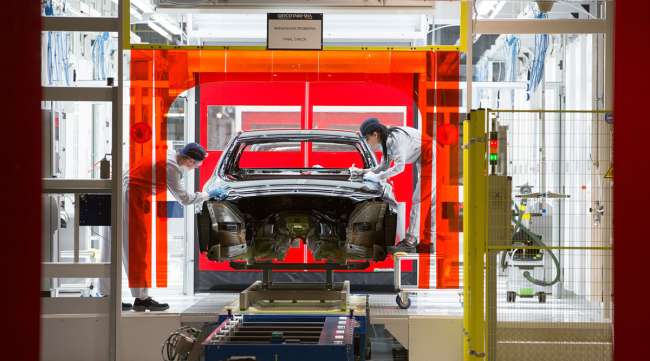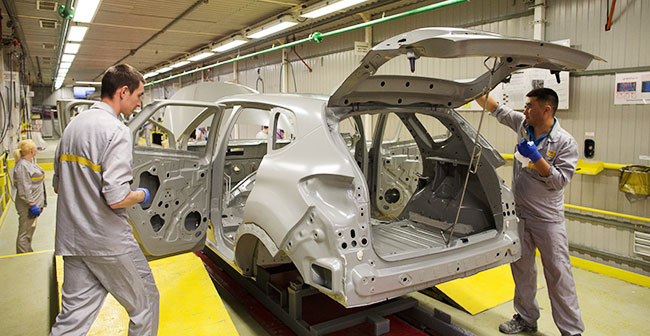Andrey Rudakov/Bloomberg News
A decline in global car sales likely reduced world gross domestic product by 0.2% last year, and a flat auto market will continue to dampen global manufacturing indicators in 2019, according to a report by Fitch Ratings on May 28.
Demand for autos declined in 2018 for the first time since 2009 and while the 0.1% drop was modest, it compared to an average annual increase of 4.1% in prior years. Softness in the car industry ripples across the economy more than some other sectors because of the wide array of industries involved in automakers’ supply chains such as steel and glass.
The weakness in sales already has seeped into the economic data of countries with high exposure to the industry. Germany saw a GDP contraction in late 2018, while Mexico’s and South Korea’s economies shrank in early 2019.
The Fitch report projects that the global auto market will stabilize this year, but “a strong rebound looks quite unlikely,” Chief Economist Brian Coulton and analyst Pawel Borowski wrote.
Andrey Rudakov/Bloomberg News
Additionally, the threat of new U.S. tariffs on imported vehicles, and parts, would risk hammering an already-fragile car market and slowing global growth further.
“The risk of increased tariffs on global auto trade remains real and would be a significant drag on global GDP if it were to materialize,” Coulton and Borowski wrote. “The global nature of auto production makes the sector particularly vulnerable to an increase in tariffs.”
Earlier this month, President Donald Trump said imported cars represented a threat to U.S. national security but delayed imposing levies on imported vehicles and parts from the European Union, Japan and other nations by 180 days.



